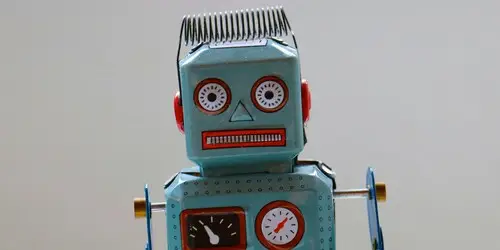Is the Automotive Parts Advisor Job at Risk from AI?
Welcome to the future, where AI is creeping into every corner of our lives, from making our coffee to driving our cars (well, almost). But what about the world of automotive parts? Are we looking at a future where our friendly neighbourhood parts advisor is replaced by a sleek, efficient bot? Let’s dive into it.
Automation and Efficiency
First, let’s talk about the obvious: automation. AI is good at handling repetitive tasks. Inventory management, order processing, and even predicting which parts will be needed and when are all areas where AI excels. Imagine an AI system that can monitor stock levels in real time, reorder parts automatically, and predict future demand based on trends and data. Sounds efficient?
But hold your horses. While AI can streamline these tasks, it doesn’t mean the end of the human role. Instead, it can free up parts advisors to focus on more complex and valuable tasks, like helping customers and solving tricky problems.
Customer Interaction
Now, let’s talk customer service. AI-driven chatbots are becoming more common on websites and in call centres. They can answer frequently asked questions, provide part recommendations, and even assist with basic troubleshooting. These bots are fast, efficient, and always available.
However, they could be better. Human advisors still have the edge in understanding the nuances of a customer’s needs, especially in a specialized field like automotive parts. AI can tell you which oil filter fits your car, but can it share stories from the racetrack or explain why one brand is better than another for high-performance vehicles? Not quite.
Specialized Knowledge
Here’s where things get interesting. The job of an automotive parts advisor is about more than just looking up part numbers. It’s about knowing cars inside and out, understanding the intricacies of different makes and models, and diagnosing issues that aren’t straightforward. This level of expertise and experience is challenging to replicate with an algorithm.
AI can help by providing advisors with quick access to information and even diagnosing common problems. But humans still reign supreme in terms of depth of knowledge and the ability to think creatively.
The Human Touch
Lastly, let’s remember the human touch. Building relationships, earning trust, and understanding a customer’s specific needs are things that a machine can’t easily replicate. People appreciate a knowledgeable advisor who can share personal experiences, offer tailored advice, and provide reassurance.
Think about it. When your car is making that weird noise, do you want to talk to a robot, or do you want to speak with someone who can nod empathetically and say, “Yeah, I’ve seen this before. Here’s what we’re going to do”?
The Future of the Parts Advisor
So, is the automotive parts advisor job at risk from AI? In a word, no. While AI will undoubtedly change the landscape, it’s more about evolution than extinction. The savvy parts advisors will find ways to leverage AI to enhance their service, streamline their workflows, and focus on what they do best—providing expert advice and building lasting relationships with their customers.
Ultimately, AI and humans will likely work side by side, each playing to their strengths. The future of the automotive parts industry isn’t about choosing between AI and human advisors; it’s about finding the perfect balance between the two.
So, embrace the change, leverage the tech, and do your best. The automotive world still needs your expertise, passion, and human touch.




